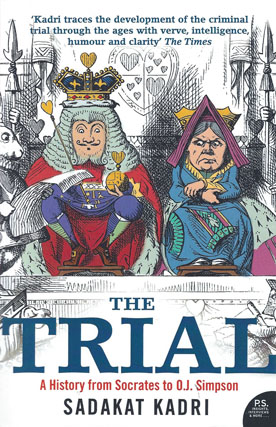
In an extraordinary history of the criminal trial, Sadakat Kadri traces the development of criminal justice from the marbled courtrooms of Athens, past the torture chambers of the Inquisition to the judicial theatres of seventeenth-century Salem, from 1930s Moscow and post-war Nuemberg to the virtual courtooms of modern Hollywood.
For as long as accuser and accused have faced each other in public, criminal trials have been establishing more than who did what to whom, and in this fascinating book Sadakat Kadri, a practicing barrister, surveys over four thousand years of courtroom drama. Encyclopaedic and entertaining, comprehensive and colourful, The Trial addresses many profound themes with verve and wit. Who has the right to judge, and why? What did past civilisations hope to achieve through scapegoats and sacrifices - and to what extent are defendants still made to bear the sins of society at large?
In the book, Kadri journeys from the silence of ancient Egypt's Hall of the Dead to the clamour of twenty-first century Hollywood to show how emotions and fears have inspired western notions of justice - and the extent to which they still riddle its trials today.
He explains, for example, how juries emerged in medieval England as a variation on trials by fire and water, a divinely supervised validation of vengeance, and how delusions precisely identical to those that sent witches to the stake revived as Satanic child abuse accusations during the 1980s. Although Justice's sword has always been double-edged - as ready to destroy a community's enemies as to defend its dreams of due process - the judicial contest also operates to enshrine some of the western world's most cherished values.
The show trials of Stalin's Soviet Union were shams, but Guantanamo Bay and Abu Ghraib act as a reminder that no-trials are equally unjust, and at a time when our familiar constitutional landscape seems to be melting away, an appreciation of the criminal courtroom's history is more necessary than ever.